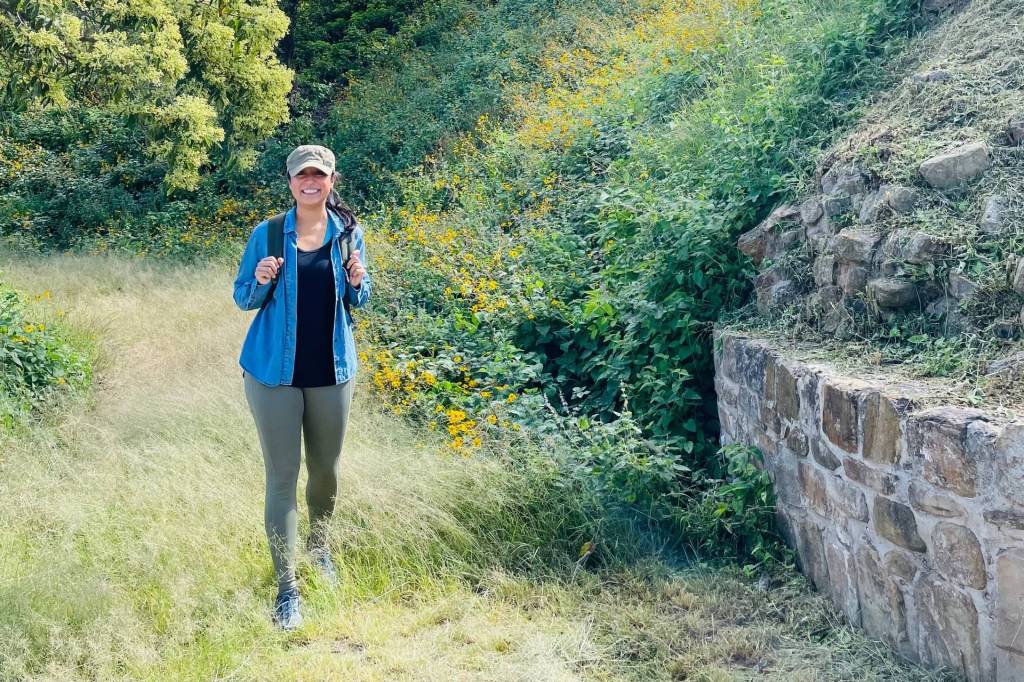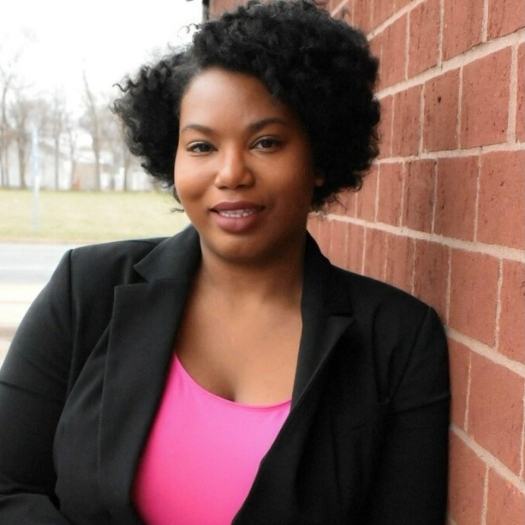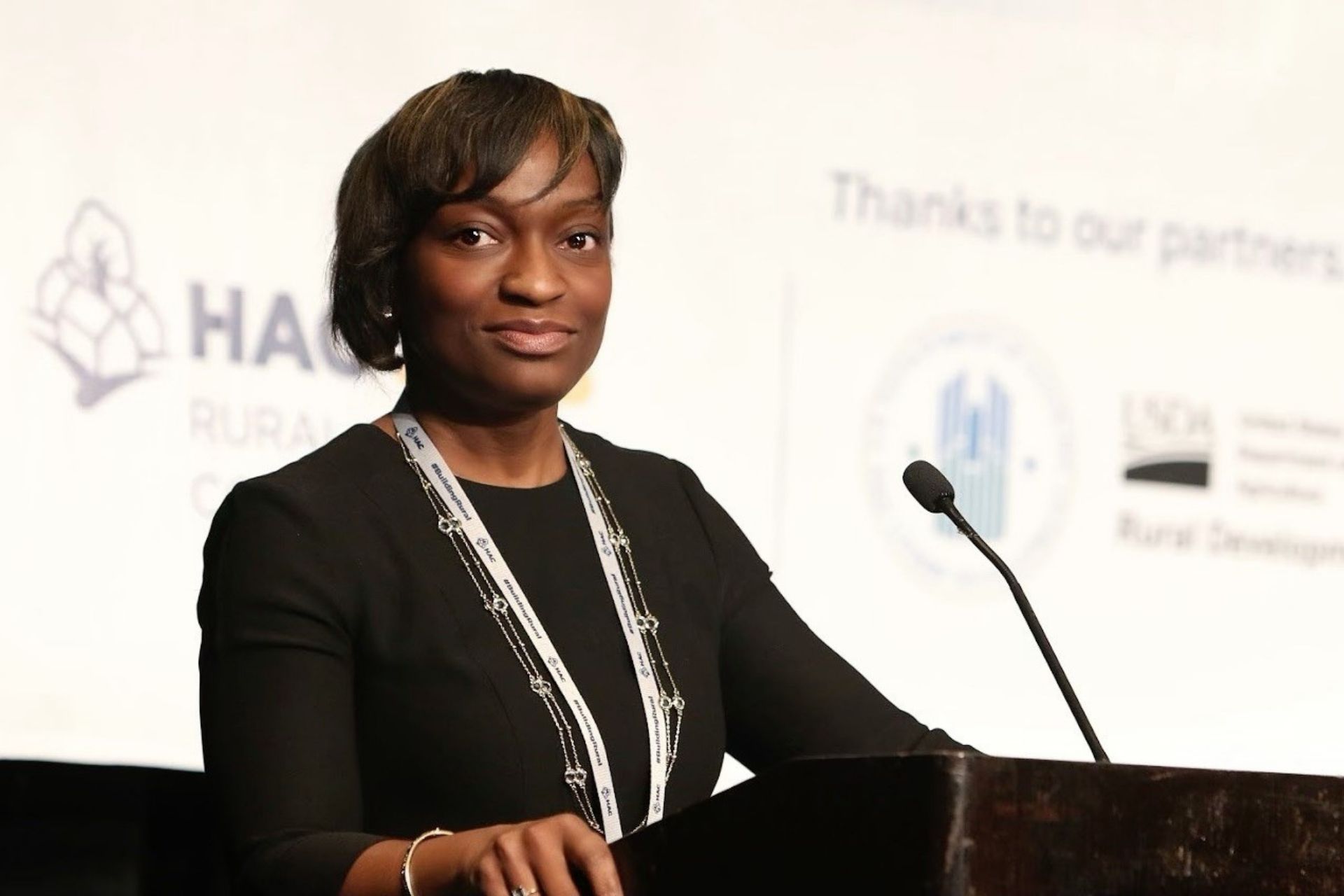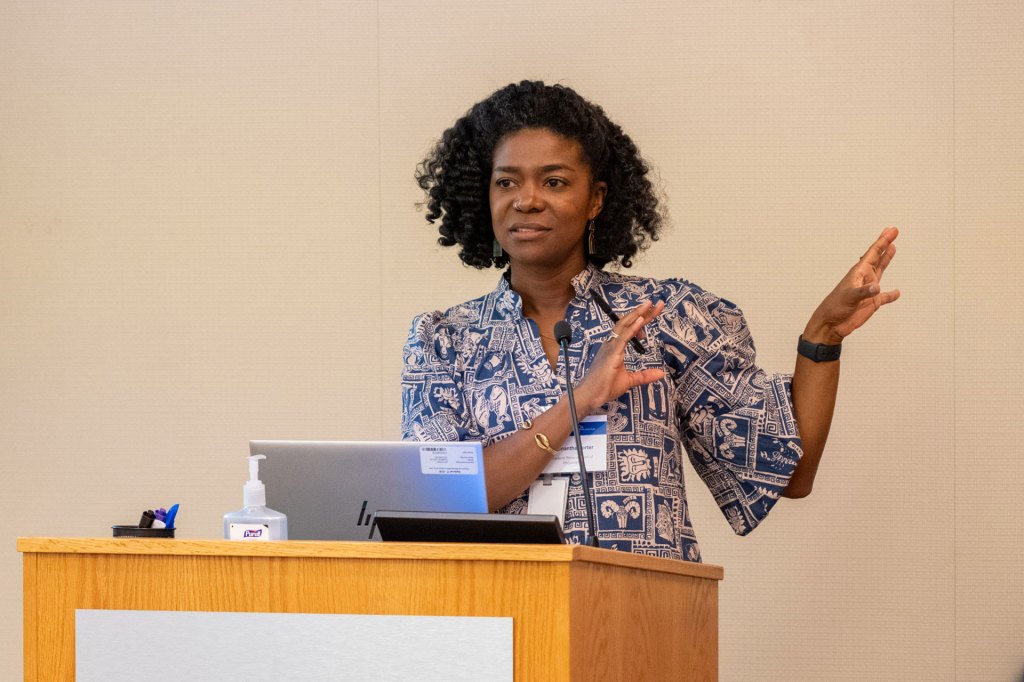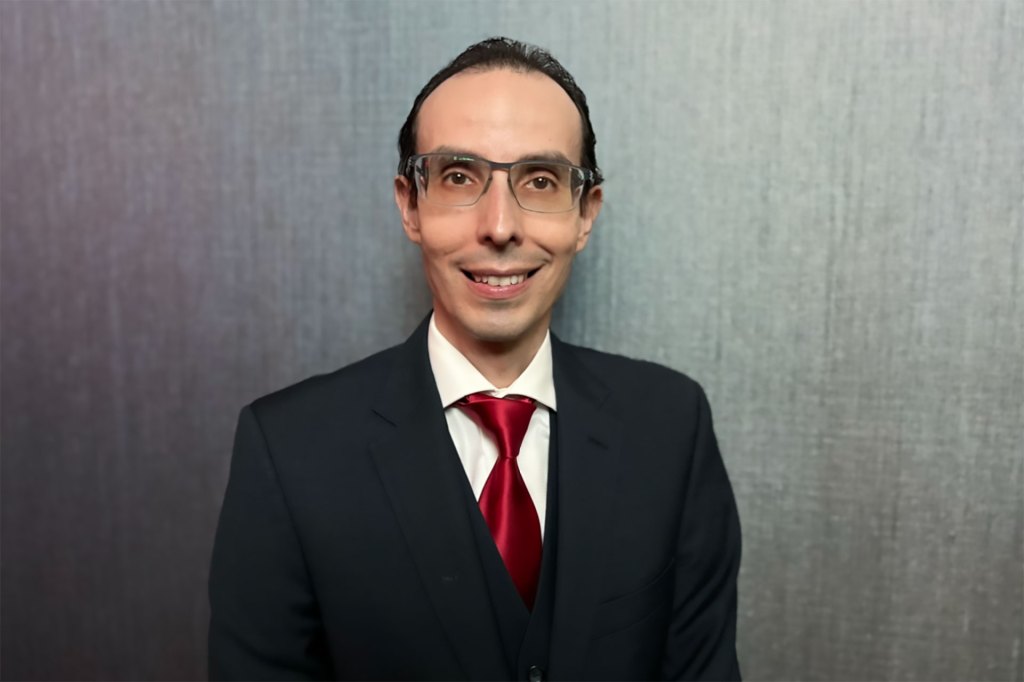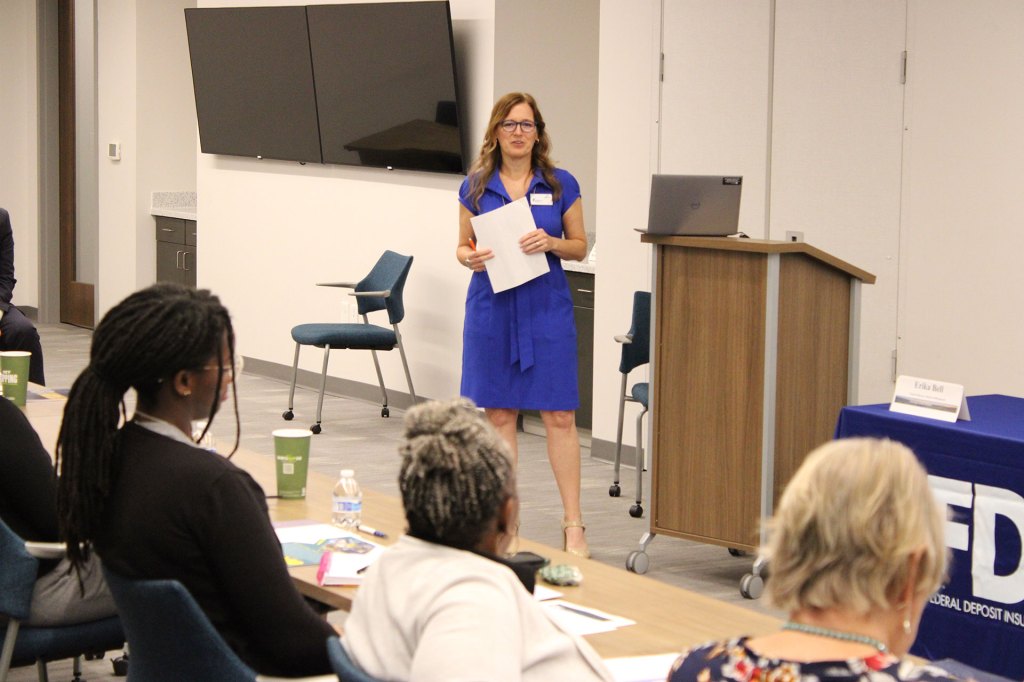Marycruz De León, Senior Community Development Advisor, Dallas Fed
“My parents didn’t finish school. My dad completed the second grade, and my mom went up to the sixth grade. Both grew up in small towns in Mexico with few opportunities,” Marycruz De León explains. “They only had an elementary school in my mom’s town. Some kids would go live in another town to complete high school, but that was mostly for men.” Because they lacked access to education, her parents emphasized the importance of completing as much school as possible. “Growing up, I knew post-secondary education would open up opportunities for me.”
The values her parents instilled would lead Marycruz to pursue a bachelor’s degree and a master’s degree in economics. During her undergrad at Baylor University, she attended a speech given by the Dallas Fed’s Pia Orrenius. Marycruz was mesmerized by the research Orrenius was doing on immigration. “Pia spoke about a program that my dad and grandfather had been a part of that allowed Mexican men to come to the United States for work, primarily short-term agricultural contracts,” she recalled. “Back then, I didn’t know people did research on that kind of thing. I just thought she was the coolest person.”
Remembering Orrenius’s speech and the work she was doing, in 2014 Marycruz applied for a position in the Research Department at the Dallas Fed’s El Paso Branch. There, she even got to collaborate with her economic idol.
“I love that I get to meet individuals who are passionate about helping their communities. It energizes me to watch and experience the good happening in our world.”
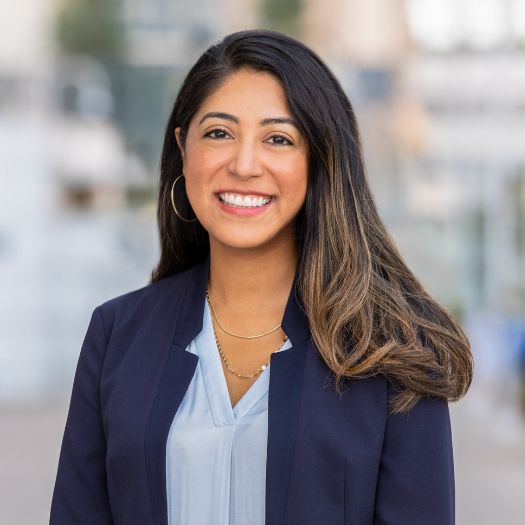
Two initiatives to advance communities
Currently, as a senior community development advisor for the San Antonio Branch of the Dallas Fed, Marycruz supports community partnerships in her District that are working to improve the region’s education and workforce outcomes and promote digital inclusion.
Marycruz works on two targeted initiatives: Advance Together™ and Advancing Digital Inclusion.
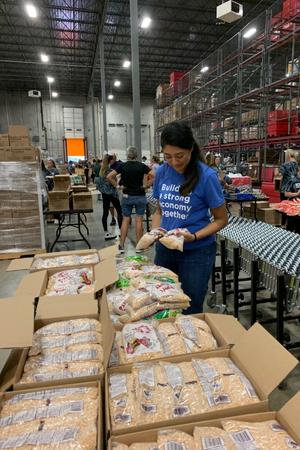
Advance Together™, launched in 2019, is a four-year initiative to strengthen and accelerate the important work community partnerships are doing. The partnerships promote quality education and pathways to jobs that pay a living wage. The goal is to remove systemic barriers to educational attainment and employment for Texas children and families.
Advancing Digital Inclusion is a three-year effort that began in 2020. It is focused on increasing broadband connectivity and affordability, and digital literacy in four demonstration sites in Texas and New Mexico.
Both efforts rely heavily on collaboration. In the initial steps of the Advancing Digital Inclusion program, a group of communities representing a diverse set of challenges, demographics, and regions was assembled. “It takes representation from all areas to identify the challenges and then come up with solutions that work for everybody,” says Marycruz.
This group, spanning rural and urban geographies, brought many issues to the table. “One of rural areas’ biggest issues is that they often don’t have the broadband infrastructure. There’s just no where to get the internet,” Marycruz explains. “Urban communities struggle with affordability. The internet is there, but families don’t have the means to pay for a monthly subscription.”
“All of these partners at the table have different priorities. We help them work together to achieve one goal decided by their coalition.”
One avenue through which Marycruz’s team provides support is the Leadership Academy. The academy is a 15-month professional development program for community leaders playing critical roles in Advance Together™ and Advancing Digital Inclusion. The academy’s goal is to help leaders develop the skills to be able to coordinate and lead coalitions more effectively.
Using trust to increase digital access
Participation of community leaders and stakeholders is imperative to the success of the Dallas Fed’s initiatives.
Prior to the COVID-19 pandemic, Marycruz and her team were primarily focused on doing extensive research. The state’s transition to a remote posture created an immediate need for action to help provide digital access for people to attend work and school. Thus, work on the Advancing Digital Inclusion initiative began.
When the initiative began, Marycruz and her team, like many of the coalition partners, were working remotely because of social distancing mandates. “We had to figure out how to access those without access. Working remotely forced us and our partners to come up with creative ways to share information and gather input from stakeholders.”
One of the coalitions participating in the Advancing Digital Inclusion initiative, Doña Ana Broadband, enlisted “promotoras”—trusted leaders in the community who traditionally share information on health resources, such as where to get a vaccine. These individuals went door to door asking residents if they had internet and what their challenges were with getting it. “The promotoras were able to gather 1,500 survey responses. It was inspiring watching their passion for their communities,” Marycruz recalls.
For Marycruz, partnering with community leaders is one of the most rewarding parts of her job. “I love that I get to meet individuals that are passionate about helping their communities. It energizes me to watch and experience the good happening in our world.”






